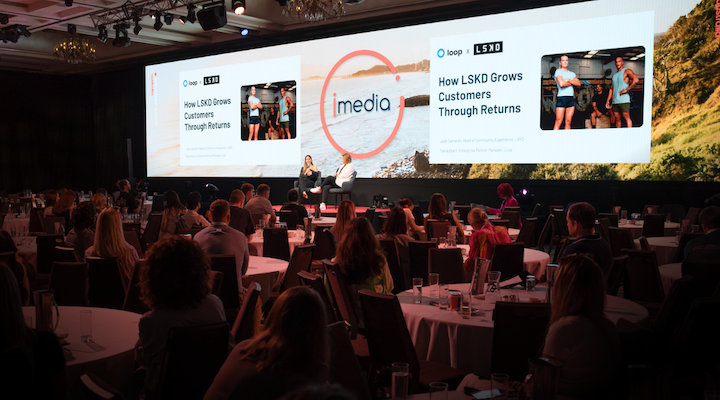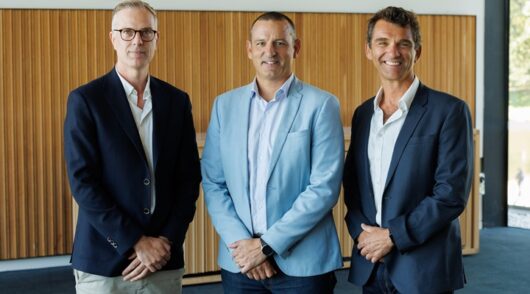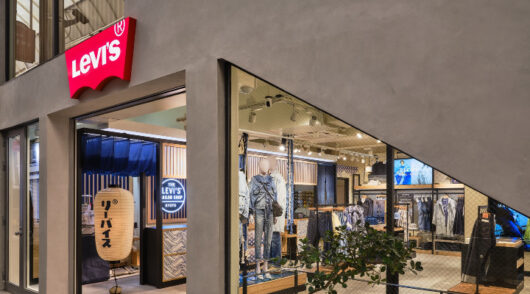It is imperative for retail industry leaders to stay up to date on current and emerging trends – important decisions often hinge on relevant data, shared stories and expert opinion.
According to a report on research conducted by Honeycomb Strategy and published by iMedia, the Industry Trends & Attitudes Report found that 75 per cent of decision-makers prefer to keep on top of the ever-changing and evolving retail trends by attending key industry events.
Despite retail leaders’ easy access to online reports, live webinars, Zoom meetings, news headlines and LinkedIn posts, in-person conferences and networking events have quickly become the preferred way to share knowledge and expand community.
“You have to look back to move forward, and we see that time and time again when we have our events,” Anna Cannon, head of marketing and communications at iMedia, told Inside Retail.
“It’s coming together to share the war stories, the details on the hurdles and relations in the retail industry – they get the opportunity to hear from different brands’ perspectives and across different verticals as well, to compare notes on what’s been trialled, what’s been successful, and what learnings came from the failures,” she followed.
The report captures a moment in time and identifies the critical trends that senior business leaders, decision-makers, and innovators are navigating across the retail, e-commerce, and marketing sectors. Insights and the findings will go on to shape iMedia’s summits.
Making space for innovation and resilience
But iMedia’s upcoming Retail Summits are designed to do more than just reflect current industry challenges. They are deliberately structured to spark innovation, facilitate deep knowledge exchange between peers and directly address the most pressing issues facing retailers.
“As ‘corporate matchmakers’ and ‘professional experience architects’, we are constantly looking at ways to transform professional interactions into idea-generating moments,” Cannon elaborated.
“We don’t just facilitate introductions or simply provide speakers to present; we architect environments where serendipitous insights could go on to spark transformative collaborations – some that may even redefine industry or regional boundaries,” she added.
Throughout the two-and-a-half-day summit, retail leaders will take a journey through a variety of formats, including strategic discussion forums, expert panels, structured debates, and interactive breakout sessions – A schedule that is curated to place an intentional emphasis on thought leadership.
“They can commit their time knowing they’ll experience an immersive thought leadership summit for executives and senior leaders that will leave them inspired, knowledge-filled, motivated and more connected to their industry than they were prior,” Cannon shared.
Taking a forward-looking perspective
The forward-looking perspective shared in iMedia’s Industry Trends & Attitudes Report is echoed by many forecast experts, strategists and futurist sentiments.
“By analysing past challenges and successes, we can anticipate future industry shifts. It helps us at iMedia proactively design conference themes, content and sessions that are ahead of the curve,” stated Cannon.
“The report reflects insights and priorities shared from leaders across both Australia and New Zealand, and the coming decade is expected to be both highly disruptive and deeply transformative for business leaders, especially those in retail and eCommerce,” said Cannon.
Instead of just grouping the data collected from Australian and New Zealand retail leaders including c-suite executives and departmental heads, iMedia has segmented the data to create regional specificity and deeper insights.
A key example of finding the nuances between Australian and New Zealand retail leaders is how retail leaders in each country are approaching and integrating AI technology into their respective businesses.
The report revealed that one in two of the surveyed decision-makers across both Australia and New Zealand are focused on using AI for automation – perceiving it as a business-critical tool and crucial to achieving operation efficiency.
According to iMedia, Australia is more focused on an aspirational vision when it comes to the uses of AI by leaning toward future-focused leadership, while New Zealand places a greater focus on practical innovation and operational refinement when considering the implementation of AI.
“New Zealanders are almost a little bit of a step ahead, they’re executing and utilising they are far more focused than Australians at this point,” revealed Cannon.
“Australians are actually still gathering, and they’re trying to integrate AI from a leadership perspective,” she elaborated.
IMedia Summits has been informed by this data and understands that there is a shared need across Australian and New Zealand retailers to create a better understanding of the actionable applications of AI beyond the hype.
“We see this is a great way of showcasing what one region might be more versed or focussed on compared to the other – and with that comes opportunity – to share, consult or even warn,” Cannon explained.
These insights and iMedia’s unique “looking back to move forward” approach guide the topics, keynotes, debates and panels that contribute to all their summits and events, not just their flagship Retail Summit Australia.
“These summits are opportunities to stop the merry-go-round, to actually pause for a moment, and take a step away from the desk to come together with others facing the same sorts of technological integration,” concluded Cannon.
- To understand how Australian and New Zealand C-suite executives, departmental heads, and key strategic decision-makers are approaching AI, download iMedia’s full report on Industry Trends and Attitudes here.






